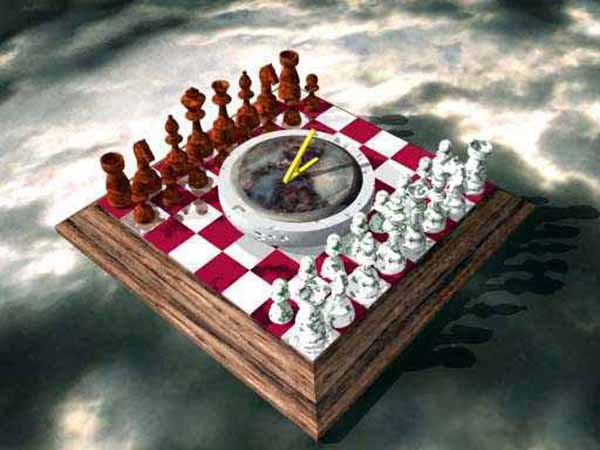
Champion of “America First” and self-proclaimed formidable negotiator, President Trump can confirm that the United States will no longer be fooled by more skilled foreign spokespersons. NATO, NAFTA, the Iranian nuclear agreement, the TPP and even the aid granted to Australia for welcoming refugees have in this way been denounced as many calamitous agreements devised by a remarkable series of incompetent presidents.
While individual qualities and interpersonal relationships are significant advantages, the key element in any international negotiation remains the relative power of the different stakeholders. In this matter, the United States leveraged an exceptionally advantageous position to establish, as a consequence of World War II, the architecture of a contemporary international system.
The Impossible Best ‘Deal’
Europe and Asia were, in fact, economically and militarily devastated. Developing countries, in particular in Africa, were still under colonial power. The USSR was rapidly becoming a threat that drove the states that didn’t agree with its ideology toward American power. In this respect, Washington was in a position, during the 1940s and 1950s, to create the U.N., to form alliances — NATO with Western Europe and ANZUS with Australia and New Zealand — giving the U.S. a certain influence over defense policies of their allies and allowing them to establish rules for finance, monetary relations and business on an international level.
Trump is not the first American president to feel that the institutions linking the United States with the rest of the world need some adjustments or are simply ignored. Nixon undermined the Bretton Woods system by suspending the convertibility of the U.S. dollar into gold in 1971. Bill Clinton and George W. Bush bypassed the authority of the U.N. Security Council to take military action in Kosovo and Iraq. George W. Bush rejected the Kyoto Protocol and withdrew the United States from the Treaty of Rome, which established the International Criminal Court.
Deeply altering the international order, as it seems Donald Trump wants to do, is a dangerous whim, which is based upon fundamentally erroneous presumptions. Certainly, the workings of international organization, not least of all the U.N., could be improved. The negative effects of globalization, in particular on employment, must be better understood. The European and Asian allies have the means to contribute further to joint defense. Nonetheless, the United States has enjoyed an undeniably beneficial and advantageous situation for more than 70 years.
Could the Trump administration take advantage of a dominant position in order to negotiate better agreements than in the middle of the 1940s? Such an idea is ridiculous, as the relative power of the United States on the international scene is less today. In 1945, the United States possessed around 40 percent of global capacity (military, economic, demographic). Since the beginning of the 1990s, their share has fluctuated around 15 percent.
Alienation of the Allies
On another note, while it is true that no great power can rival the United States, economic and military resources appear more diffuse than they were in 1945. Security concerns are more complex. Of course, China is not yet the military equal of the United States. However, they have a strong strategy of influence, combining coercion — particularly in the South China Sea — and corruption, with a policy of developmental aid and trade in Africa, Asia and Latin America. Russia still has the ability to be a nuisance, as we witnessed with the situation in Ukraine.
While the international scene is chaotic, for the two weeks he has been in the White House, President Trump has appeared to be committed to alienating the traditional allies of the United States. The European Union is weakened by Brexit and is in the grip of uncertainty as it awaits the elections in France and Germany this year. Yet, Trump found nothing better to do than to weaken the strongest ally of the United States even further by welcoming the British prime minister with open arms and denouncing German performance in the matter of exports. His desire to erect a wall on the Mexican border started a useless quarrel with the neighbors in a traditionally peaceful North America. Australia has been one of the most loyal partners in American military ventures, from Korea to Iraq, including Vietnam and Afghanistan. Their prime minister was, however, the recipient of the White House host’s ranting and raving.
Rex Tillerson and John Mattis, respectively secretaries of state and defense, demonstrated during their hearings before the Senate that they understand rather well the intricacies of the contemporary international environment. However, it is not clear whether they will receive the attention necessary to prevent Trump precipitating the end of the old world that has served the United States so well.

Leave a Reply
You must be logged in to post a comment.